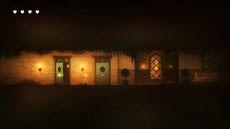‘Scrolls’ First Impressions – Mojang’s Next Big Hit?
Yesterday, Mojang announced that their upcoming game, Scrolls, launched into Open Beta and there would no longer be service-wide resets. This means that the cards, —I mean scrolls— that players collect and assemble into decks would remain there until the end of time. I have always been a bit jealous of those that were involved with Mojang’s Minecraft in its infancy. Getting to see a massive game evolve and grow in a very hands-on way, appeals to every part of the gamer nerd I am. So when I discovered that Mojang was doing something similar with Scrolls, I threw hesitation away and battled my way through the bogged-down Scrolls website to buy myself a copy.
Scrolls is a trading card game where players use cards called scrolls to summon creatures or structures out onto a two-sided game board. Players can only place their creatures or structures on their side of the board. The board is broken into two 3×5 grids that allow room for one character or creature per grid space. Creatures typically attack, and structures typically are defensive. Players also have access to spells and enchantments that they can cast, as long as they have the resources necessary to cast them.
This was the first mechanic of Scrolls that really I appreciated: there is only one type of resource, and you get it simply by sacrificing scrolls. There is no need for filling a deck with twenty or thirty resource cards, as every single scroll can be scarified to increase the total resource count for that player, by one. At the start of every turn the resource count is filled back up.
This resource mechanic is incredibly easy to learn, and even easier to keep track of while in-game. At first the mechanic may seem to simplify things too much, but there is plenty of strategy in choosing which of your cards to sacrifice in order to play others. Alternatively, instead of sacrificing a card to gain a resource point, players can choose to swap out a chosen card and randomly replace it with two others from their deck. Scrolls successfully streamlined a mechanic that, in my opinion, has bogged down many card games for decades, and even by streamlining it, they managed to add a bit more strategy to the game.
Scrolls rewards players with gold, at the end of every match. So far, I’ve only played against easy-mode bots, but for winning a match I was rewarded about 70 gold, and for losing a match I was consoled with about 40 gold. Buying additional scrolls from the store is a really simple process. Players have the option of buying a random scroll for 100 gold, or a random pack of 10 scrolls (with guaranteed rare and uncommon scrolls) for 1,000 gold. Also, players can pay 175 to get a random scroll for a specific deck type (Energy/red, Growth/green, Order/blue). There are a number of other options to spend gold on too, like pre-constructed decks and additional avatar options.
Mojang offers players the ability to buy Shards with real-world currency that can be used to buy things as well, but everything can be purchased with gold, so buying Shards is always completely optional. Five dollars gets players 600 Shards and currently the ratio is 25 Shards = 100 gold. Shards become cheaper when you buy them in larger amounts ($10 for 1350 and $20 for 2900).
When players first start out with Scrolls, they are tasked with choosing a starter deck. The Energy deck (red) is all about brute force and power, the Growth deck (green) is more regeneration-focused, while the Order deck (blue) features a more strength-in-numbers approach to battles. I went with the Growth deck, and it’s been a blast. I’ve played in six battles with it…and I’ve been victorious in three of them. I’m a glass half-full kind of guy. With the growth deck I’ve been able to summon in creatures like wolves, elemental beasts, and fountain structures that can regenerate my unit’s health at the start of every turn. Every creature scroll has a unique animation, and it helps the attacking portions of the game come to life and become exciting.
From what I’ve played of Scrolls so far, this game is appealing both to people who enjoy games like Magic the Gathering, while also not being intimidating to players who may be completely new to the concept of card games. Once I get a few more nights of battles in, I’ll report back on what I think of the combat systems.
Visit the official Scrolls website in the meantime.





